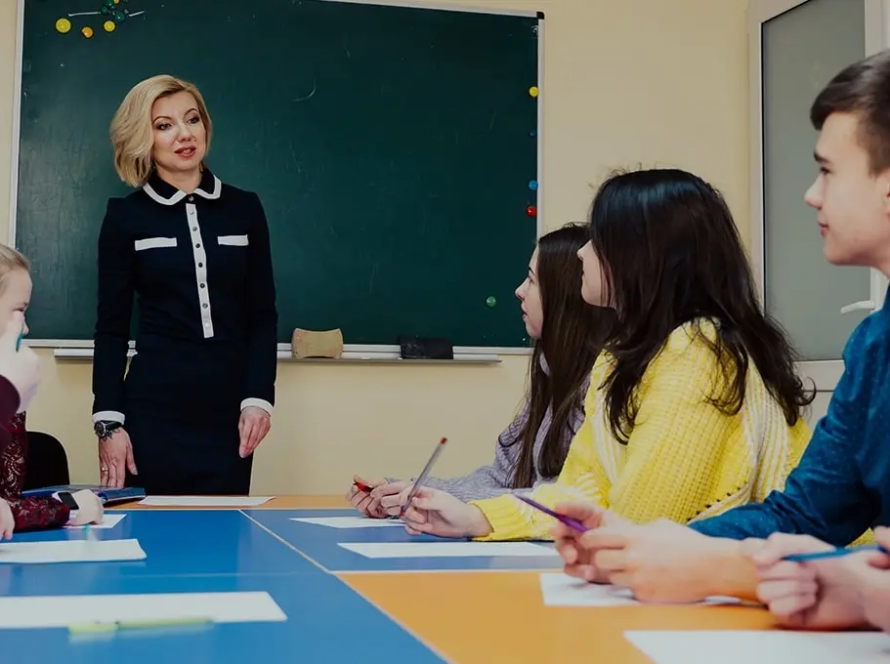Communication has been around since the dawn of time. We all have been communicating in order to express our feelings and thoughts. We began communicating as soon as we were born. Our first form of communication was the first cry. However, developing communication skills begins in our childhood. If you are not a good communicator, chances are your life will become confined. As a result, acquiring communication skills for children is important.
Empower Your Child Today!
"*" indicates required fields
Communication skills, like any other skill, can be acquired and improved with enough practice. Developing communication skills for children can help them grow in many areas of their life, including their careers and relationships with others. Furthermore, great communication skills make it easier to make friends as a kid. Here are a few more reasons why children’s communication is so important:
1. The early they learn it, the less they will struggle as an adult
It won’t be wrong to say that our childhood influences our adulthood. Our response to various situations as an adult is heavily influenced by childhood experiences. Building healthy relationships can be aided by excellent communication skills. Furthermore, children understand that being a good communicator also requires the skill of being a good listener. Communicating with others also helps us keep track of our emotions.
Researchers suggest that learning any skill set as a child is easy. It helps them to inculcate the lessons. Communication as an adult is an essential skill, and thus starting early can give them an edge over others.
2. They learn to express the discomfort
Many children are prone to mental health issues like anxiety, stress, and depression. Thus by having healthy communication with your child, you can help them open up. In this way, you can get verbal cues from them whenever they need help.
When you give them a chance to open up, they are most likely to seek you in the event of distress. Together you can come up with various ways of coping and solving the problem. It also makes them feel that they are not alone and are being heard. These conversations create a safe space for them. Furthermore, it strengthens the parent-children bond.
3. Better communication can help them become a better listener
Being an effective communicator and a good listener go hand in hand. Communication is a two-way procedure. To be a great communicator, you need to comprehend what others are conveying and respond accordingly.
When we understand what others are saying, it becomes easier for us to learn more about other people’s point of view before forming our own. Being a good listener also builds mutual understanding and trust. It enables communication to be effective. Communication is ineffective unless people listen. Moreover, it also helps them to be empathetic and patient. They understand the value of listening to others without interrupting.
4. Communication skills can help them excel academically
Communication entails both verbal and nonverbal information transfer. It is more critical to convey the information than to have the knowledge. Because by doing so, you can unleash your full potential.
Learning communication skills improve vocabulary. This benefits you with writing tasks in school. Also, it assists them in actively participating and doing well with presentations in school, which is essential in building self-confidence.
5. Improve parent–children dynamic
Learning how to communicate effectively can reduce parent-child conflict. You can help your child improve their thoughts through effective communication. Sometimes toxic patterns run in the family. If your family has a habit of not discussing problems or only having yelling matches, you must break the cycle. This is where communication skills for children play a role in children’s well-being.
By having healthy communication in the family, your children will feel safe sharing their problems with you. Coping up becomes easier with sharing. It will lessen their stress, and you can also come up with solutions to assist them.
6. Builds leadership quality
Being a leader, it is vital that you gain your team’s trust and align with their goals. This can be enabled by great communication. If you are clear about your objectives, you can wisely guide your team with them.
They say a wise man speaks when he has something to say, and a foolish man speaks when he wants to say something. Clarity is important when you speak. Without clarity, you might end up confusing your team. To achieve this clarity, you need to be an efficient communicator.
How is communication skills important?
Communication skills are crucial in various aspects of life, both personal and professional. They play a vital role in effectively conveying thoughts, ideas, and information to others. Here are some reasons why communication skills are important:
Expressing thoughts and ideas: Strong communication skills allow individuals to express themselves clearly and confidently. It enables them to articulate their thoughts, share ideas, and contribute to discussions in a meaningful way.
Building and maintaining relationships: Effective communication is essential for building and maintaining healthy relationships, whether it’s with family, friends, colleagues, or clients. Good communication fosters understanding, trust, and respect, leading to stronger connections.
Resolving conflicts: Miscommunication often leads to conflicts and misunderstandings. By honing communication skills, individuals can express their concerns, actively listen to others, and find mutually beneficial solutions. It helps in reducing conflicts and promoting harmony.
Enhancing teamwork: Collaboration is an integral part of professional environments. Strong communication skills facilitate effective teamwork by promoting clear instructions, active listening, and sharing of ideas. It ensures that team members are on the same page, working towards common goals.
Advancing career prospects: In the professional realm, effective communication skills are highly valued by employers. Clear and concise communication enhances productivity, efficiency, and collaboration within teams. It also helps individuals to present their ideas persuasively, negotiate effectively, and showcase their expertise during interviews.
Active listening: Communication is a two-way process, and listening is as important as speaking. Active listening involves paying full attention to the speaker, understanding their perspective, and responding appropriately. Good listening skills foster better understanding and promote effective communication.
Building confidence: Improving communication skills boosts self-confidence and self-esteem. The ability to express oneself clearly and engage in meaningful conversations instills a sense of assurance in personal and professional interactions.
Adapting to diverse audiences: Communication skills are vital for interacting with people from different cultures, backgrounds, and perspectives. The ability to adapt communication styles, use appropriate language, and show cultural sensitivity fosters inclusivity and avoids misunderstandings.
Leadership and influence: Strong communication skills are crucial for effective leadership. Leaders must be able to inspire, motivate, and influence others through their words and actions. Effective communication enables leaders to convey their vision, set expectations, and guide their teams towards success.
Personal growth: Constantly improving communication skills leads to personal growth and lifelong learning. It allows individuals to better understand themselves, empathize with others, and adapt to evolving communication trends and technologies.
How to improve communication skills for kids?
Improving communication skills in kids is essential for their overall development and future success. Here are some tips to help enhance their communication abilities:
Encourage active listening: Teach children the importance of paying attention when others are speaking. Encourage them to maintain eye contact, nod, and ask questions to show that they are engaged in the conversation.
Foster open-ended conversations: Encourage kids to express their thoughts and feelings by asking open-ended questions. This allows for more detailed and meaningful responses, rather than simple “yes” or “no” answers.
Practice good body language: Teach children about non-verbal communication by emphasizing the significance of body language. Encourage them to stand or sit up straight, use appropriate gestures, and maintain a friendly facial expression while communicating.
Teach empathy and understanding: Help children develop empathy by encouraging them to consider others’ perspectives and feelings. Discuss the importance of being respectful and understanding when communicating with others.
Expand vocabulary: Encourage kids to read books, listen to audiobooks, and engage in conversations that introduce them to new words. Help them understand the meanings of unfamiliar words and encourage their usage in everyday conversations.
Role-play and storytelling: Engage in role-playing activities or storytelling sessions where children can practice expressing themselves. This helps improve their verbal communication skills, creativity, and confidence.
Provide constructive feedback: When kids communicate, provide them with constructive feedback to help them improve. Focus on both the content and the delivery of their messages, highlighting areas they excel in and areas for improvement.
Encourage public speaking: Encourage children to participate in activities that require public speaking, such as school presentations, debates, or community events. This helps build confidence and improves their ability to articulate thoughts in front of an audience.
Limit screen time: Excessive screen time can hinder communication skills. Encourage face-to-face interactions, group activities, and discussions to promote effective communication.
Be a good role model: Children learn a great deal from observing their parents or guardians. Model good communication skills by maintaining clear and respectful communication within the family. Show them the importance of active listening and effective expression.
Improving communication skills takes time and practice. Be patient and provide opportunities for kids to engage in various forms of communication.
Communication skills are undoubtedly an important aspect of your children’s life. It will help them grow up into better individuals. Now that we know what communication skills are and why they are important for your children’s overall development. Get to know more about how you can improve your child’s communication skills.
To help your child achieve a quality life, you can seek assistance from the Orator Academy. Orator Academy will help your child to work on their communication skills. To know more, please get in touch with us.



